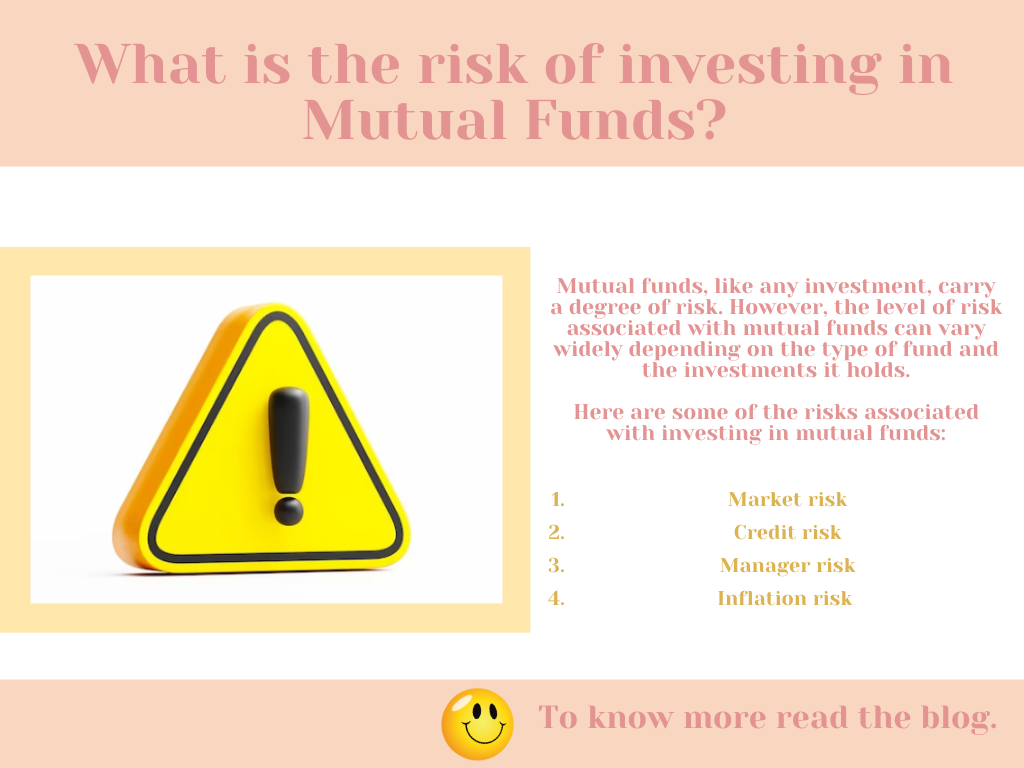What is the risk of investing in Mutual Funds?
Mutual funds, like any investment, carry a degree of risk. However, the level of risk associated with mutual funds can vary widely depending on the type of fund and the investments it holds.
Here are some of the risks associated with investing in mutual funds:
Market risk: Mutual funds invest in stocks, bonds, and other securities, and their performance is directly affected by the performance of these securities. If the market experiences a downturn, the value of the mutual fund's holdings can decline, leading to a loss for the investor.
Credit risk: Mutual funds that invest in corporate bonds or other debt securities are exposed to credit risk. If a company or government that the fund has invested in defaults on its debt, the value of the fund's holdings can decline.
Manager risk: The performance of a mutual fund is heavily dependent on the skills and decisions of its fund manager. If the fund manager makes poor investment decisions, the fund's performance can suffer.
Liquidity risk: Some mutual funds invest in securities that may be difficult to sell quickly, which can lead to a decline in value if the fund needs to sell those securities to meet investor redemptions.
Inflation risk: Inflation can erode the purchasing power of the returns generated by a mutual fund. If the rate of inflation exceeds the rate of return on the fund, the investor may actually lose money in real terms.
It's important to note that not all mutual funds carry the same level of risk. Some funds, such as index funds that track a broad market index, may be less risky than actively managed funds that try to outperform the market. It's also important to consider your own investment goals, risk tolerance, and investment time horizon before investing in a mutual fund.


